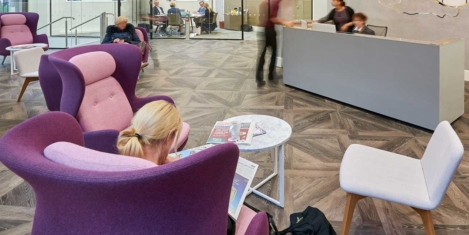To provide the best experiences, we use technologies like cookies to store and/or access device information. Consenting to these technologies will allow us to process data such as browsing behaviour or unique IDs on this site. Not consenting or withdrawing consent, may adversely affect certain features and functions.
The technical storage or access is strictly necessary for the legitimate purpose of enabling the use of a specific service explicitly requested by the subscriber or user, or for the sole purpose of carrying out the transmission of a communication over an electronic communications network.
The technical storage or access is necessary for the legitimate purpose of storing preferences that are not requested by the subscriber or user.
The technical storage or access that is used exclusively for statistical purposes.
The technical storage or access that is used exclusively for anonymous statistical purposes. Without a subpoena, voluntary compliance on the part of your Internet Service Provider, or additional records from a third party, information stored or retrieved for this purpose alone cannot usually be used to identify you.
The technical storage or access is required to create user profiles to send advertising, or to track the user on a website or across several websites for similar marketing purposes.
 The UK’s largest commercial property company, Landsec, has announced that it plans for its 24 million square feet portfolio to achieve net zero emissions by 2030 in line with the Paris Agreement on climate change. Landsec, which has a £13.8 billion portfolio of office, retail and leisure property in the UK, including its flexible office arm Myo (pictured), has had its updated greenhouse gas reduction target approved by the Science-Based Target Initiative (SBTI). (more…)
The UK’s largest commercial property company, Landsec, has announced that it plans for its 24 million square feet portfolio to achieve net zero emissions by 2030 in line with the Paris Agreement on climate change. Landsec, which has a £13.8 billion portfolio of office, retail and leisure property in the UK, including its flexible office arm Myo (pictured), has had its updated greenhouse gas reduction target approved by the Science-Based Target Initiative (SBTI). (more…)































October 29, 2019
Workplace values matter more than career progression to young dads
by Han Son Lee • Comment, Flexible working, Wellbeing